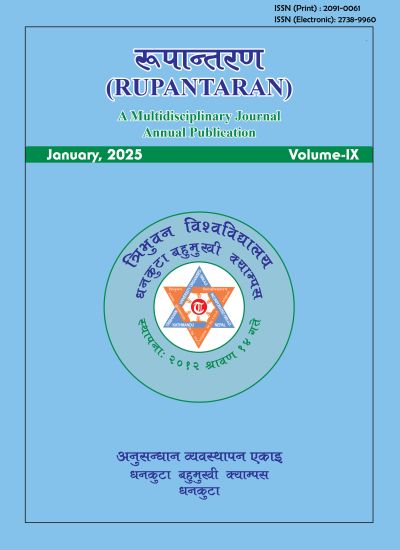The Potential of Avocado Farming in Dhankuta: A Historical and Contemporary Analysis
DOI:
https://doi.org/10.3126/rupantaran.v9i01.73509Keywords:
Avocado, hub, expansion, inspiration, satisfactoryAbstract
This paper explores the potential hub of avocado farming in Dhankuta Municipality, highlighting its significant income generation for majority households in Nepal's eastern hills. A "hub" in agriculture refers to a central location where a specific crop or industry thrives, serving as a center for production, distribution, and innovation. Dhankuta Municipality is gaining prominence as a key avocado cultivation center due to its favorable climate, fertile soil, and increasing farmer engagement in Nepal. The municipality's transition from small-scale farming to organized commercial production has significantly impacted avocado development.
This paper uses secondary data from various sources, focusing on over 44% of farm households (223 hhs) in Ward No. 3 of Dhankuta Municipality, using Yamane's sample determination formula. Data were collected through household questionnaires, focus group discussions, key informant surveys, and field observations. The finding indicates that Dhankuta has the potential to become a leading avocado farming, processing, and distribution center in Nepal, thereby boosting local economic growth and the broader agricultural sector. The avocado farming in this region has successfully combined challenges and opportunities, encouraging farmers to adopt new technologies and high-value crops. Avocado farming, despite challenges, has proven profitable and suitable for the region, with satisfactory expansion and promising future prospects.
Downloads
Downloads
Published
How to Cite
Issue
Section
License
© Research management Cell (RMC); Dhankuta Multiple Campus, Dhankuta; Province-1, Nepal

